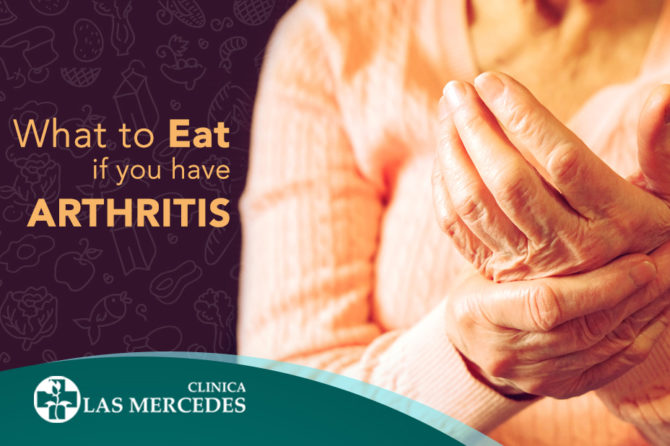
Adequate food for people with arthritis
Eating healthy foods is essential for everyone. If you have arthritis, getting the right nutrients can affect your health in a positive way and help relieve the symptoms of the disease. Overweight increases inflammation. In addition, for each pound of excess weight, a pressure of four additional pounds is exerted on the stiff and swollen joints. A healthy diet will help you lose weight and maintain the health of bones, joints and tissues.
Numerous studies have discovered a connection between food, dietary supplements (such as vitamins, minerals, and fatty acids) and certain types of arthritis and associated diseases such as gout, rheumatoid arthritis (RA), osteoarthritis (OA) and osteoporosis.
Rheumatoid arthritis (RA)
In RA, the immune system attacks the body’s own tissues, especially the synovium (a thin membrane that lines the joints). This generates joint inflammation, pain, and possible joint damage.
What to eat: a Mediterranean diet, which is based on plant-based foods (fruits, vegetables, nuts, seeds, and beans), olive oil and fish. The latter contains omega 3 fatty acids that reduce systemic inflammation (throughout the body). Two of them are called EPA and DHA. If you prefer to skip or don’t like fish, get them from sources such as soybeans (tofu or edamame), nuts, flaxseed, olives and their respective oils. If you take fish oil supplements, the recommended dose of essential fatty acids is 3.8 grams/day of EPA and 2 grams/day of DHA. Research shows that some vegetable oils such as borage and spring primers may also relieve the symptoms of RA. Consult with your doctor before adding supplements with oils in the diet.
What to avoid: saturated fats (from animal sources, such as butter, butter, and meat) and trans fats (abundant in some fast foods, processed products and junk foods). Both increase blood cholesterol and the production of C-reactive protein, which is an indicator of inflammation. Sugar also increases inflammation.
Osteoarthritis (OA)
OA is characterized by cartilage wear (part of the joint that cushions bone endings and allows them to move easily). As the cartilage wears away, the bones begin to rub against each other causing stiffness, pain and impeding mobility. To reduce the pain of OA it is essential to maintain an adequate weight through exercise and a healthy diet. According to research, losing just 11 pounds reduces the risk of developing knee OA by 50%. Losing a pound relieves four pounds of pressure on the swollen and sore joints.
What to eat: a study revealed in 2013 that a compound called sulforaphane could be the key to preventing or delaying the progress of OA. This substance is found in Brussels sprouts, cabbage or cabbage and especially broccoli and retards the destruction of cartilage in the joints associated with OA. Certain vitamins present in some foods that can help delay the progression of the disease, although there is no evidence that they cure osteoarthritis, are:
Vitamin C, from foods such as citrus fruits, strawberries, kiwis, tomatoes and peppers.
Vitamin D, contained in low-fat dairy and fortified cereals.
Vitamin K found in high amounts in egg yolk, low-fat dairy, green leafy vegetables and broccoli.
What to avoid: saturated fats (derived from butter, butter, and meat), trans fats (present in some fast foods, processed products and junk foods) and sugar, which is associated with chemicals that induce inflammation and can result in being overweight.
Leave a reply


Hi, I find the blog informative, though… nice work… do share such information. I’ll bookmark your website.It was such a wonderful and useful article about rheumatoid arthritis. It is a must-readable blog to know the brief details of <a href="https://drugcarts.com/product/tfct-nib-tablet"> rheumatoid arthritis</a>.This information is so helpful for me.
Reply